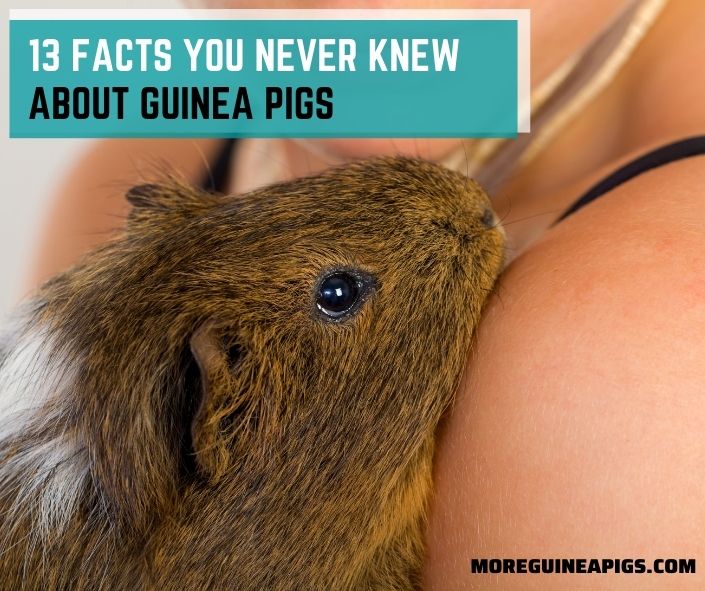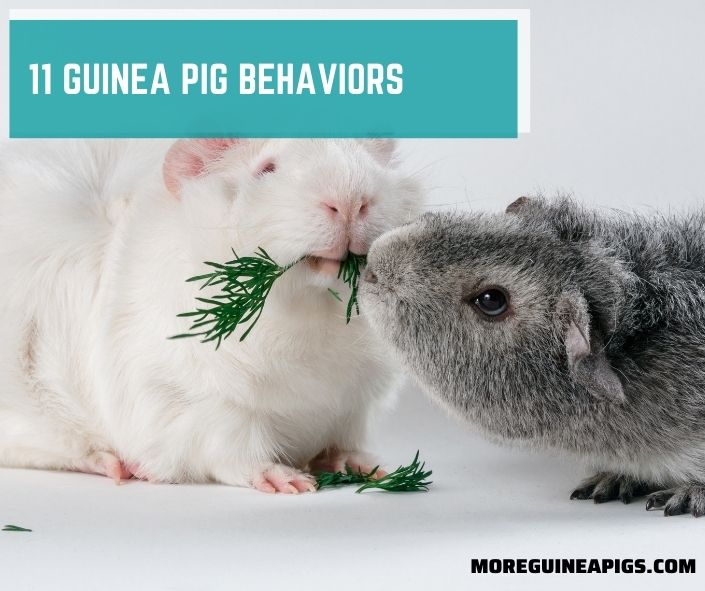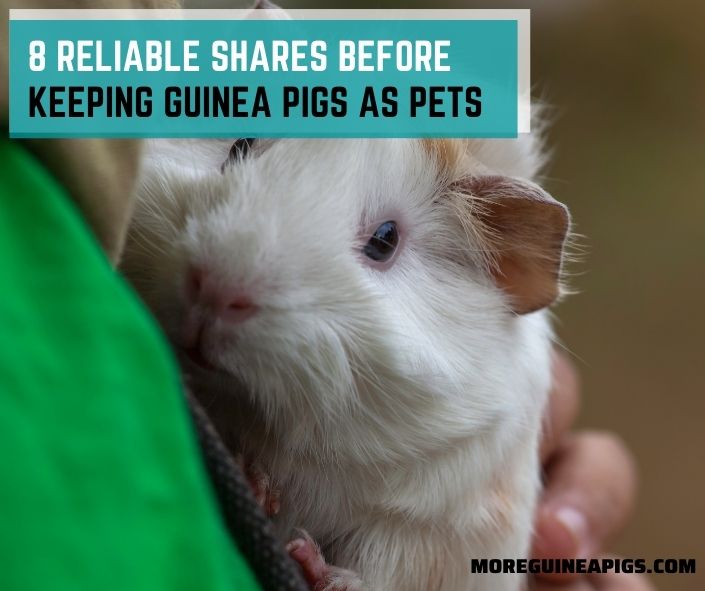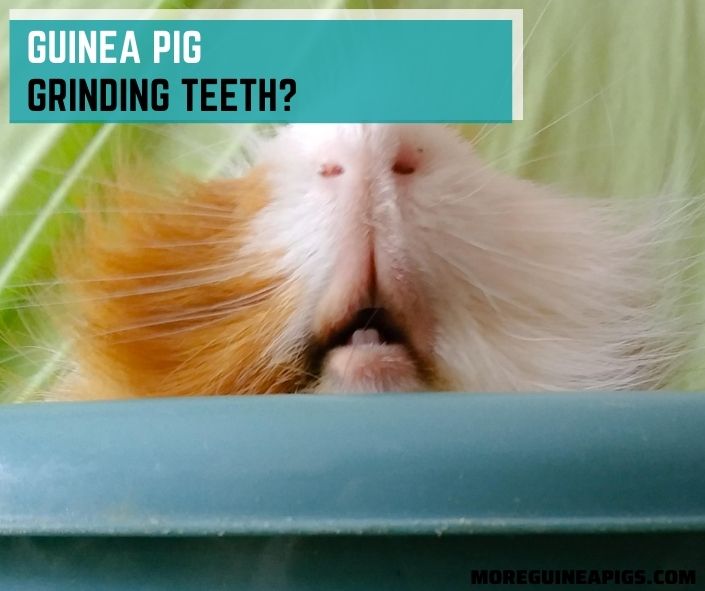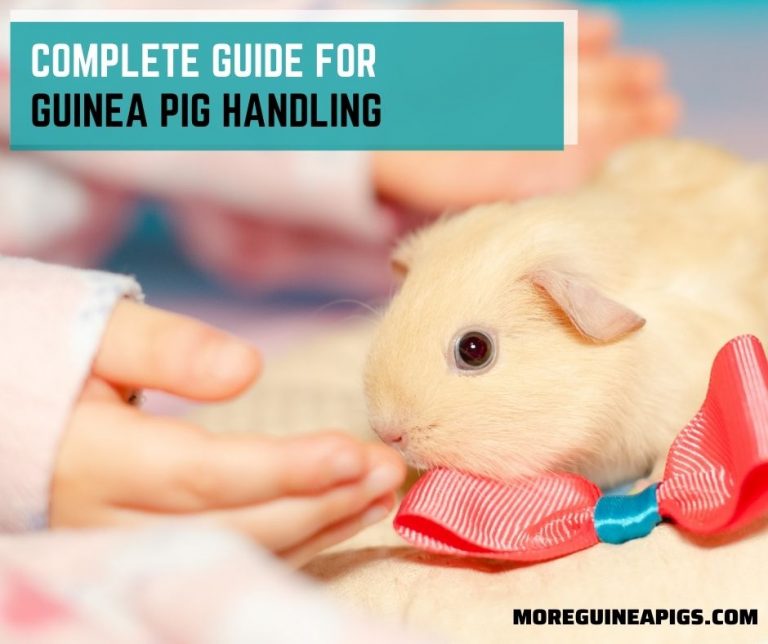13 Facts You Never Knew About Guinea Pigs
Guinea pigs are often overlooked when it comes to fact-discovery and the interest of other people among pets and animals. Although this often happens, there is so much more to guinea pigs than they are actually known for.
Right now probably feels like a time to learn more about your guinea pigs and the way they go along their own lives for further understanding of these cute little creatures.
After completing this article, you will be able to grasp 13 more trivial and fun facts that’ll amaze, shock, or even surprise you.
13 Facts You Never Knew About Guinea Pigs
Quick facts! Did you know guinea pigs reach sexual maturity at 3-4 months? Yes!
Heat is a major threat to these animals. Guinea pigs lack sweat glands and hence cannot regulate their body temperature. Because of this, these rodents’ health is jeopardized all summer long
Also, guinea pigs have four front toes but only three back. Tunneling and burrowing may help their slowness. That means they can only climb low-pitched ramps!
Special Body Structure
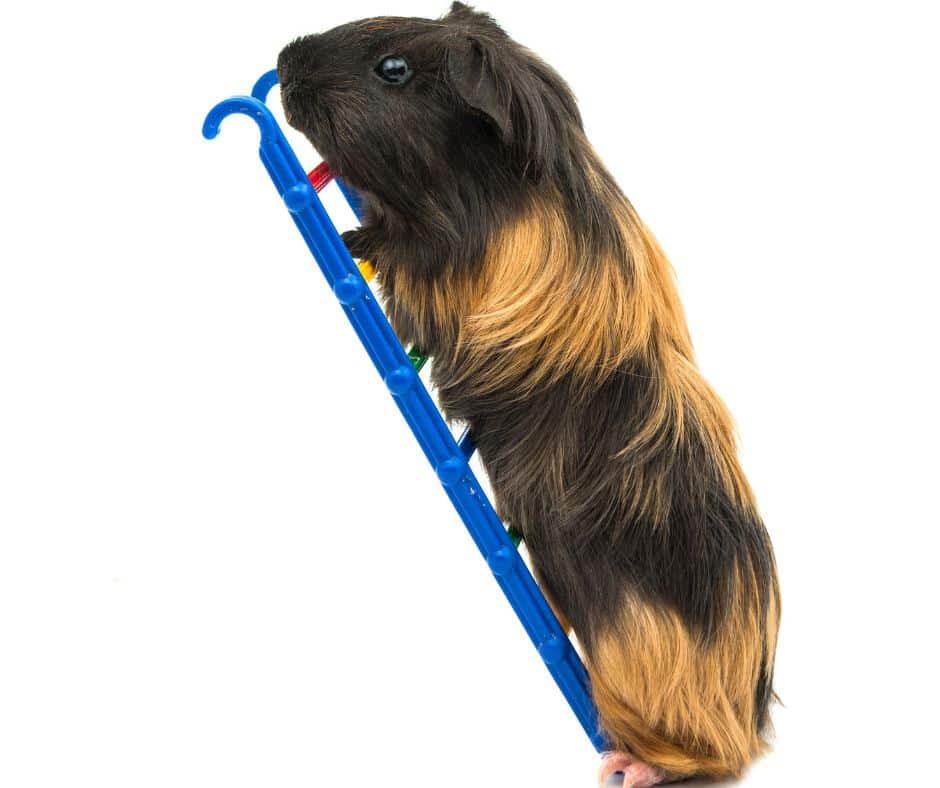
A guinea pig’s eyes can open 14 days before birth. While we’re on the subject of wombs and births, here’s another relevant fact. A newborn guinea pig can walk almost instantly. Piggies can start eating solids as soon as they are born.
Despite these advantages, they are easily blind. They can’t see far or in-depth despite their wide vision. Most of these vision difficulties stem from depth perception disorders. Guinea pigs rely on long-term memory to remember everything around.
Don’t Come From Guinea And Or Related To Pigs At All
In spite of its name, the Guinea Pig isn’t even close to being related to pigs. It is, in fact, a rodent. Guinea pigs are not part of the pig family.
They are all part of the same family as guinea pigs. Maras, mountain cavies, and other South American rodents all belong to the same group. But they’re not pigs. A lot of people think the name comes from how the animal sounds when it squeaks, like a little piglet.
They may have been called “guinea pigs” because guinea is the name of an old English coin.
Guinea Pigs Are Available But Don’t Exist In The Wild
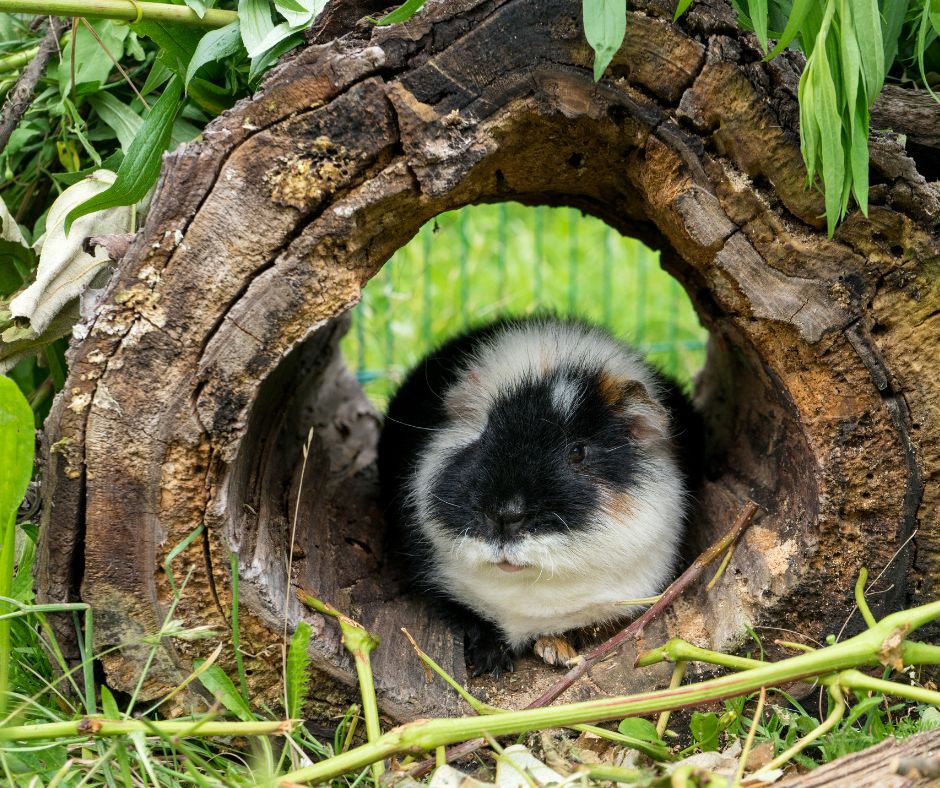
Guinea pigs were formerly considered to be wild animals. As a result of hundreds of years of domestication, they have evolved into a distinct and endangered captive species.
In the wild, they are not found, however, a close relative of theirs does, primarily in the form of other cavy species that have not been domesticated. However, it is unlikely that you will stumble encounter a guinea pig when walking around in the Wild.
Teeth Are Constantly Growing Throughout Their Lifetime
The teeth of guinea pigs never stop growing. Their front teeth, especially, will continue to grow unchecked.
Like our nails, guinea pigs’ teeth will continue to develop, thus they must be kept short. Misaligned jaws and/or teeth can result from their dynamic teeth.
Their teeth can grow up to 29 inches in 10 years. Whilst this seems unlikely, guinea pigs require regular dental care to keep their teeth from becoming excessively long, making it harder to chew their delicious foods.
Like To Chat To Each Other and with Owners

Guinea pigs are very social. Despite not being able to speak human language, they are still able to talk to each other. Guinea pigs can use a lot of sounds and postures to talk to each other.
They like to be with other guinea pigs and do better with them than alone. Guinea pigs in groups are often heard squeaking to show how happy and excited they are.
Can Make Many Noises For Different Reasons
As a sociable animal, there would have to be a catch. They can’t communicate since they can’t speak. Consider them making a fuss about their original ideas.
During conversational interactions, for example: squeaks, chortles, and small grunts can be heard, typically accompanied by other sounds.
They also ‘rumble’ during mating season, hissing and chirping when they want something or someone to stay away, cooing when comfort is needed, and screeching when something awful or shocking has happened.
May Make A Slight Jumping Movement or “Popcorn” When They Are Excited
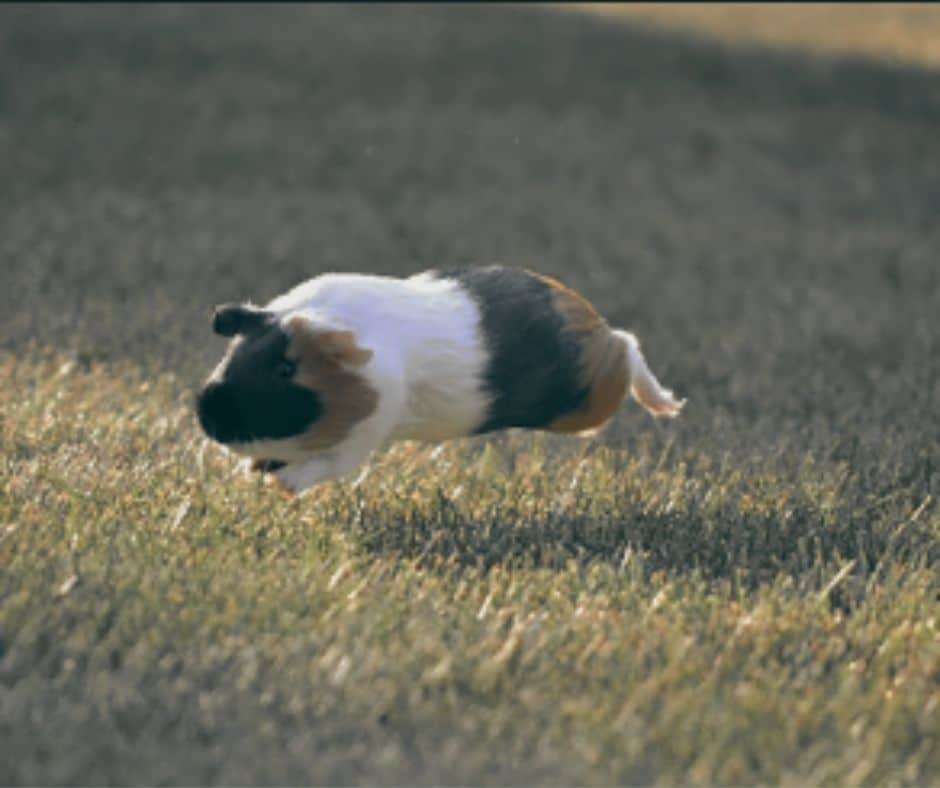
With guinea pigs’ cute nature, it is also expected of them to have some quirky actions. A delightful action they do is they ‘Popcorn’ when they get excited.
Guinea pigs commonly ‘popcorn’ when joyful or excited. Happiness is the most common motivation for guinea pigs to popcorn. To clarify further, often the guinea pig switches course and squeaks.
They can resemble a thrashing stallion. Popcorning refers to the suddenness of the jump. Don’t worry if they suddenly have a seizure, it’s probably just excitement.
Only Sleep For Short Periods And Active For 20 Hours A Day
The more we learn about the sleeping habits of guinea pigs, the more intriguing they are! The average guinea pig sleeps for four hours and is awake for the majority of the day.
Even when sleeping, guinea pigs only close their eyes briefly or not at all. They aren’t out at night or day.
Guinea pigs live 5–6 years on average but can live much longer. Guinea pigs, like other prey animals, are always on guard. They may have grown swiftly if born with their eyes open due to lack of sleep and movement.
Eat Lots And Poop More Than 100 Poop Per Day
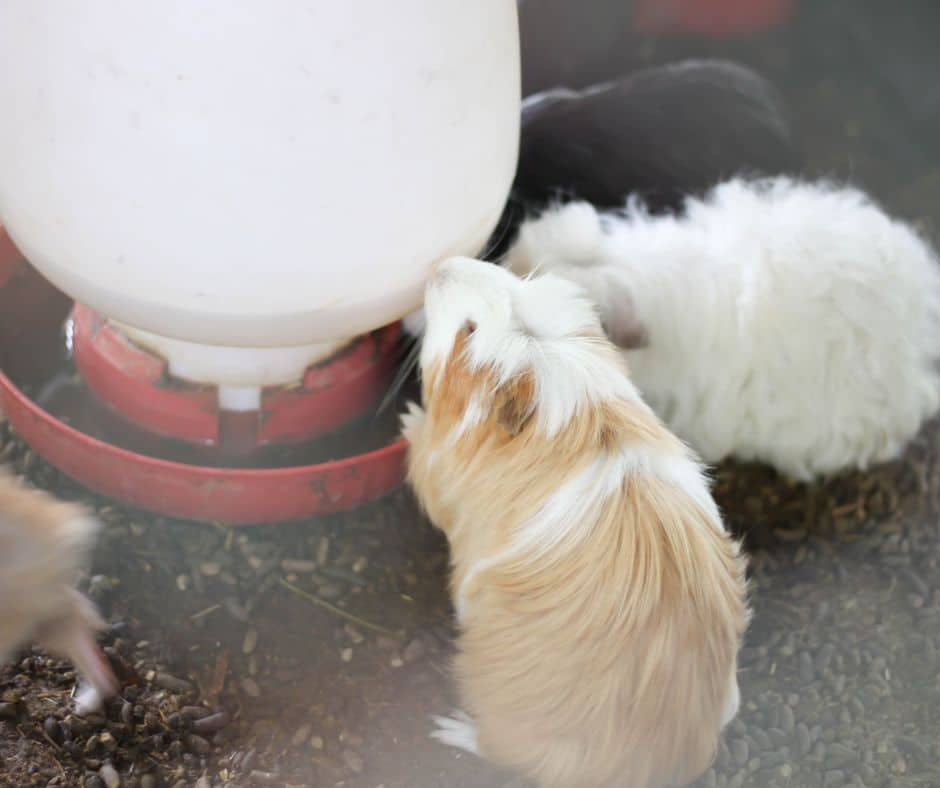
Because they are foragers, Guinea pigs are always hungry. They are constantly on the lookout for food. Guinea pigs are usually hungry because they are herbivores.
When they consume a lot of food, they produce a lot of feces. Guinea pigs eating excrement is a normal phenomenon. They eat to get critical nutrients including fiber and vitamins C and K.
Guinea Pigs Are Intelligent and Can Learn Tricks
Guinea pigs are smart rodents that can be taught many different things. They don’t like monotony. You’ll see right away that they’re smart and curious.
So, how clever are guinea pigs? It is a good sign that guinea pigs are smart when they can learn quickly and easily.
You don’t have to show this animal again how to find a treat in a toy. It already knows. In order for your guinea pig to learn new skills, you need to be patient.
Sows Will Share Parenting Duties
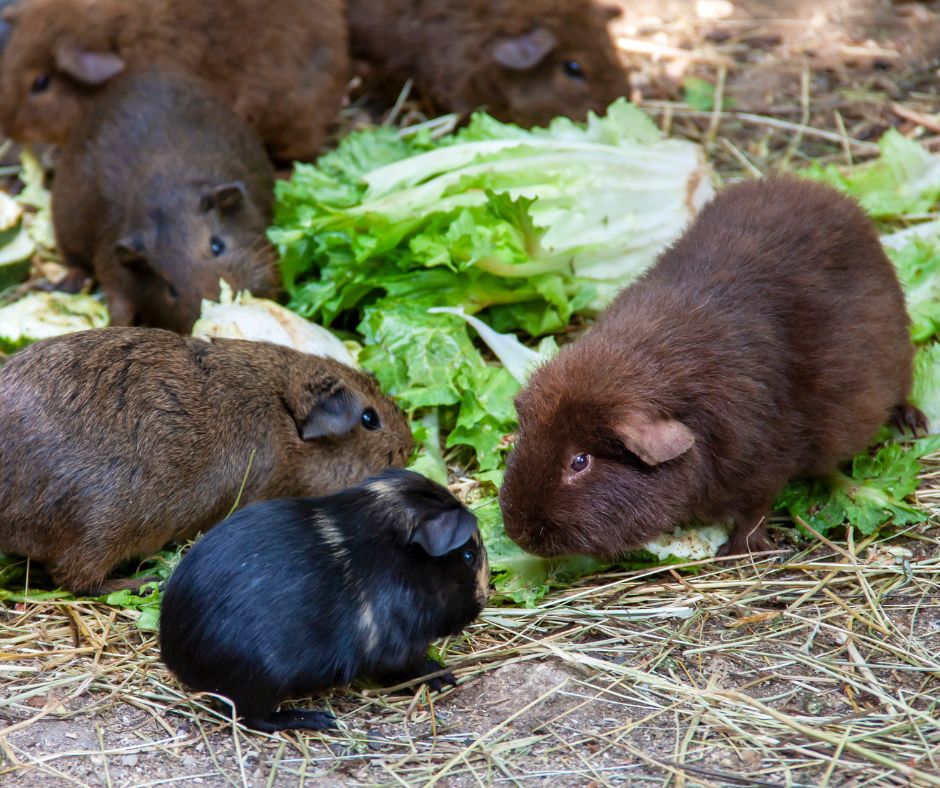
When two sows are in a bond, they often share parental duties with other sows. Even though non-lactating sows don’t seem to care about the pups, all lactating sows will feed them.
These women are very good mothers, but some of the younger ones may not be ready for the responsibility of being a parent just yet.
It’s possible for Guinea Pigs to leave their pups when they’re pregnant and having babies if they’re stressed out too much.
They’re Good at Mask Their Illnesses
Because they are prey animals, Guinea pigs experience pain but do not display any apparent signals of distress, resulting in their suffering for long periods of time before being recognized.
Changes in usual behaviour might be a warning indication of disease or pain in the early stages. As a result, it is critical to be familiar with their daily routines and to examine them on a frequent basis.
Guinea Pigs Were Used Heavily for experiments
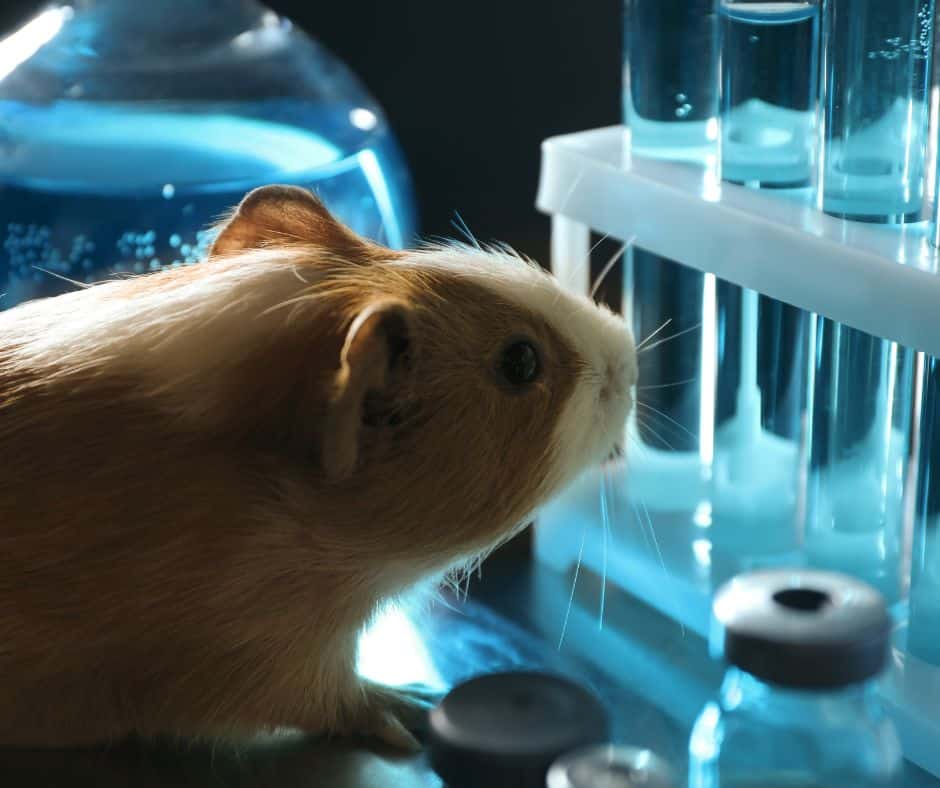
The West’s love for this rodent has skyrocketed. So specialists started researching them. Mice and guinea pigs were still used. Science recognized them throughout the nineteenth and twentieth centuries.
During this time period, they were widely utilized as test subjects. Mice and rats have mostly replaced it. Even so, they are still used in disease research. Animals that need vitamin C like humans are appropriate for testing.
Conclusion
Guinea pigs are interesting animals. These creatures are full of fascinating tidbits, some of which may have a major effect on the treatment they acquire in captivity.
Before making the decision to bring home one of these fascinating creatures, Vets often urge new owners and existence once to educate themselves as much as possible about them.
Many people underestimate the difficulty of raising them but in the end, they make good companions don’t they?
